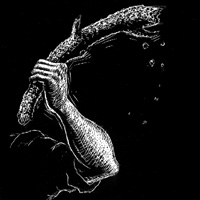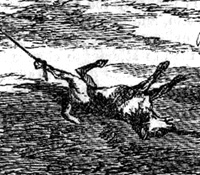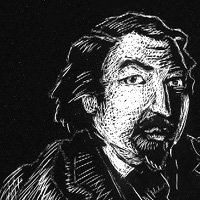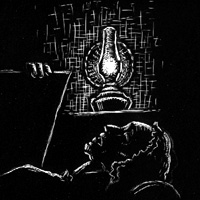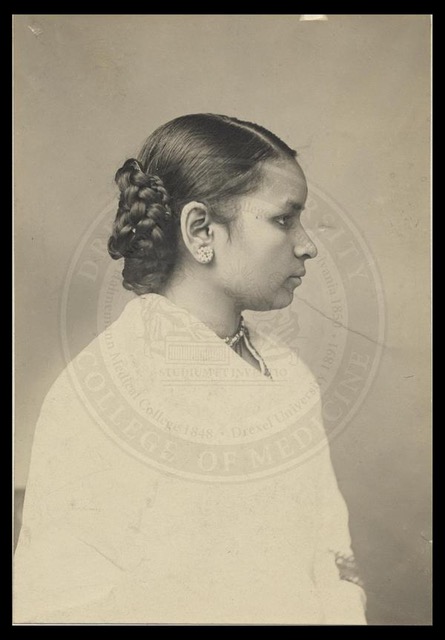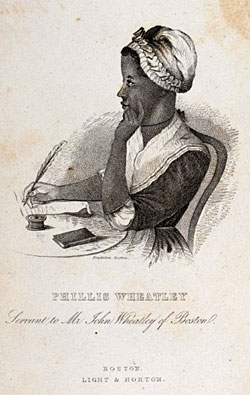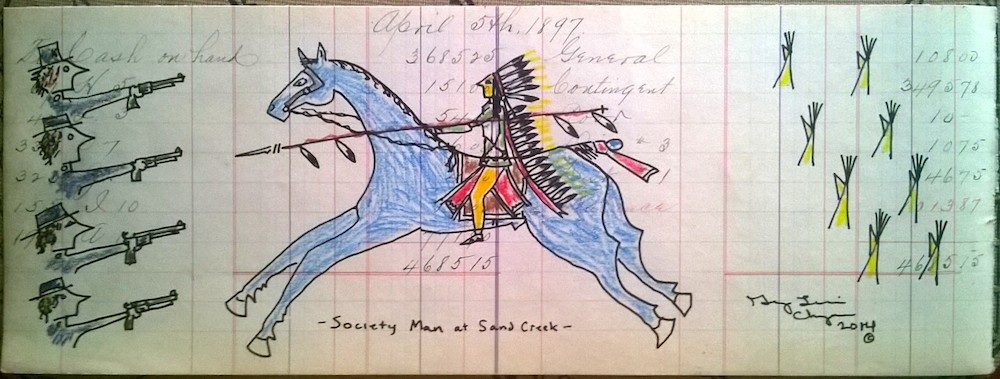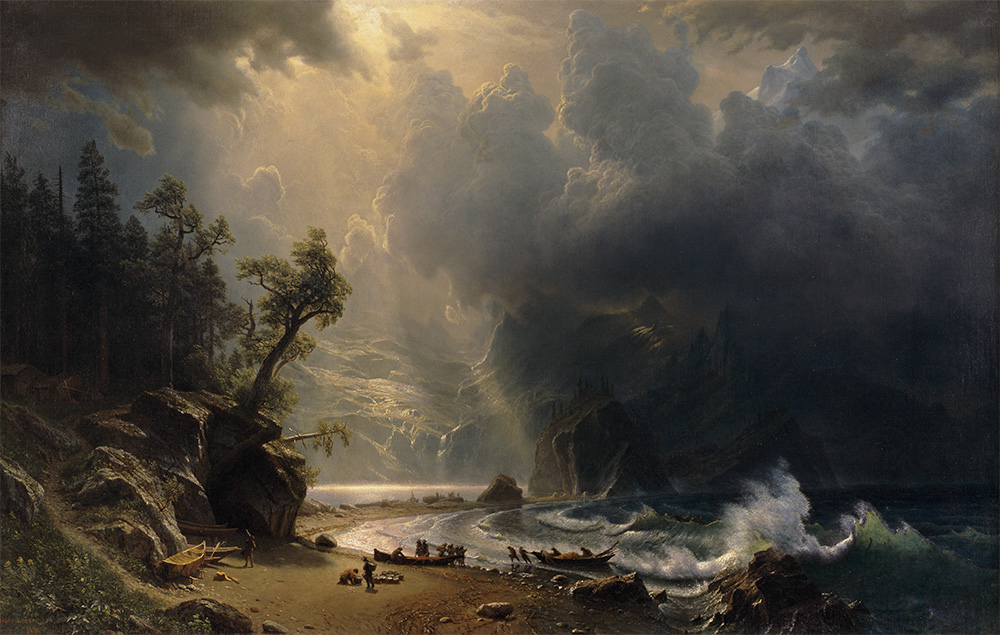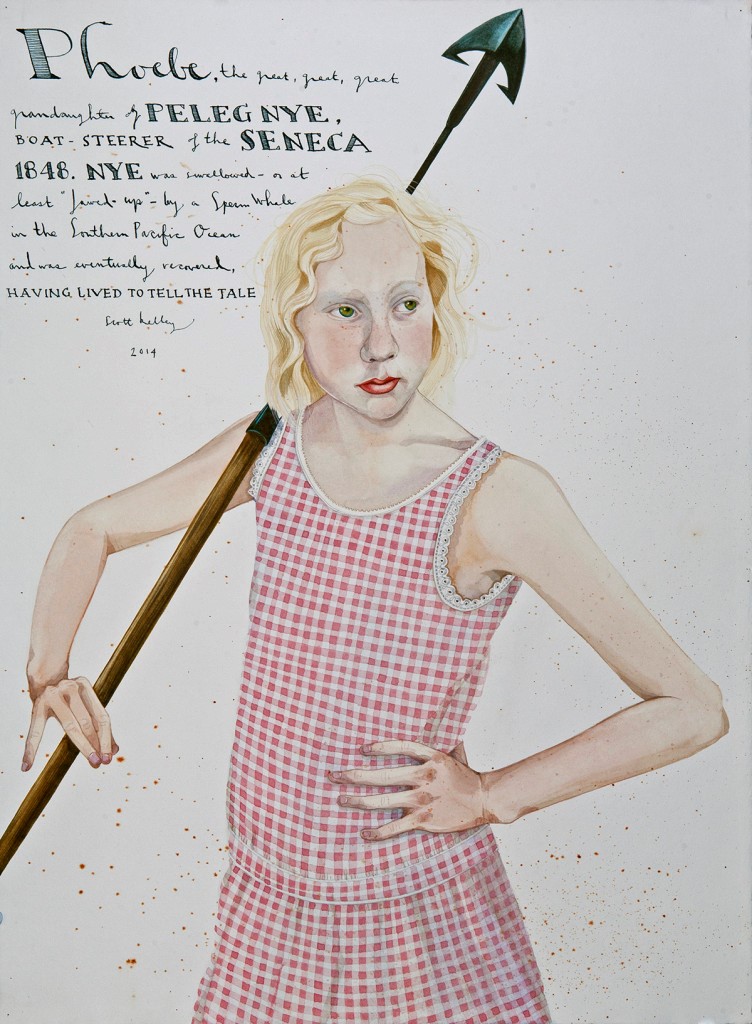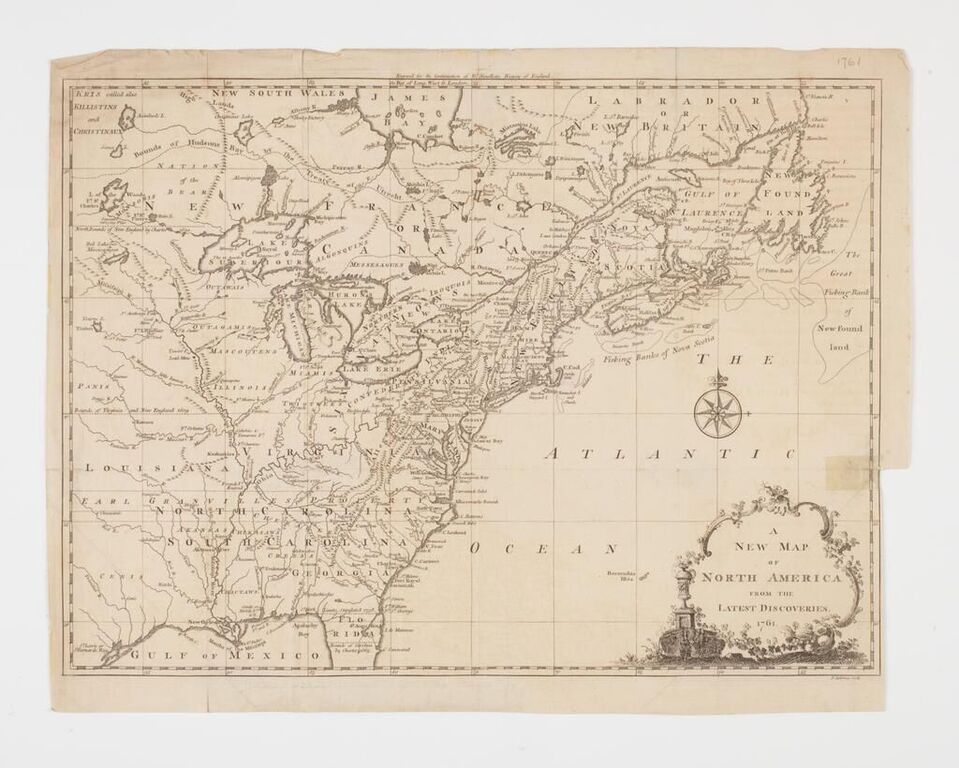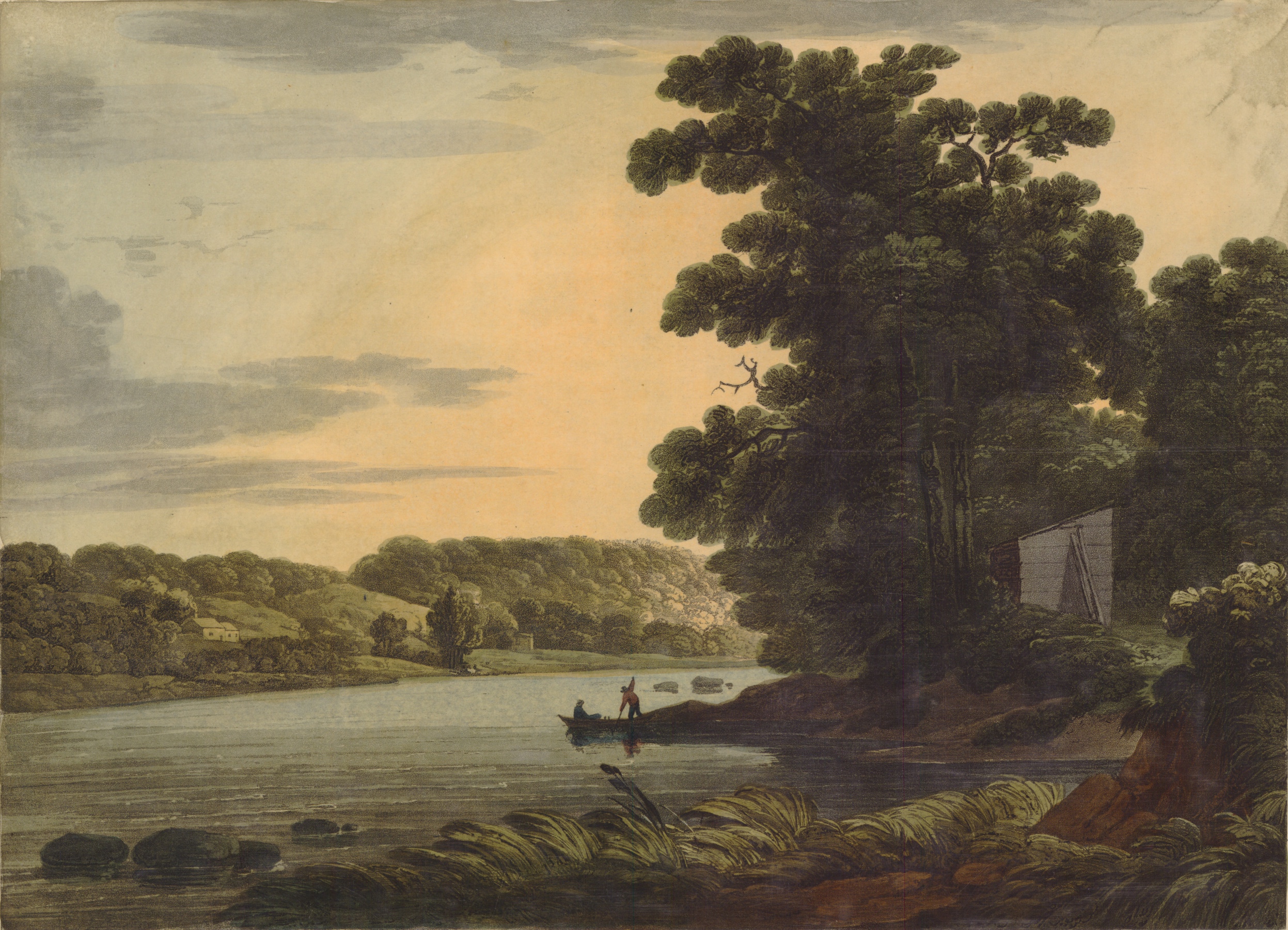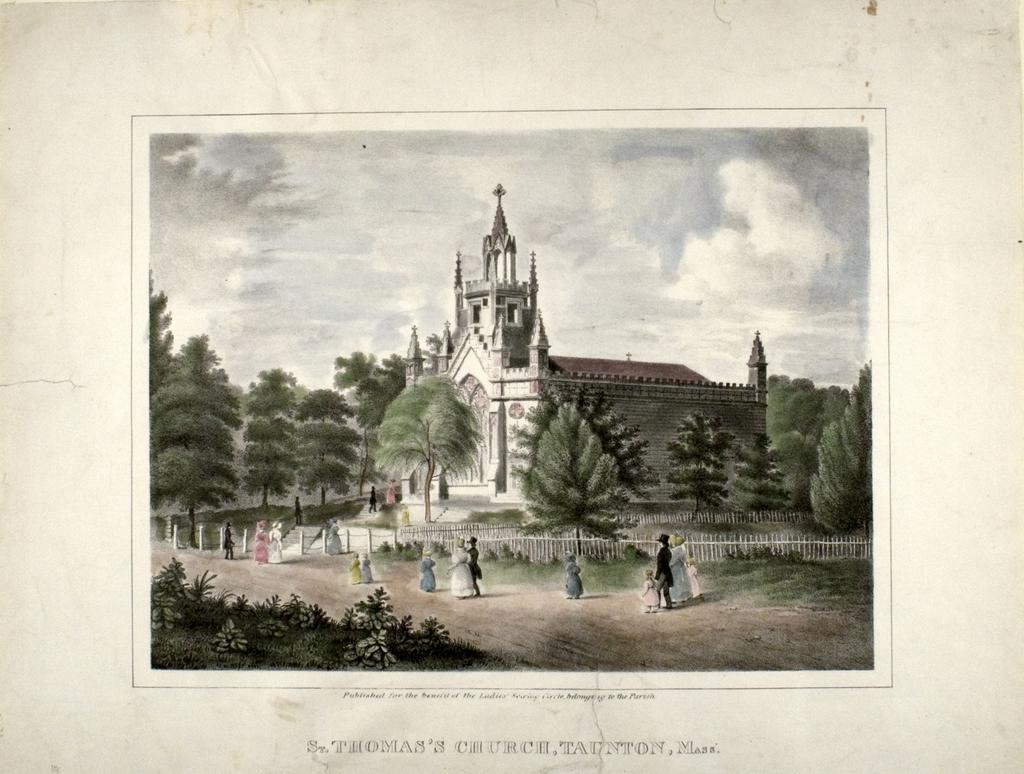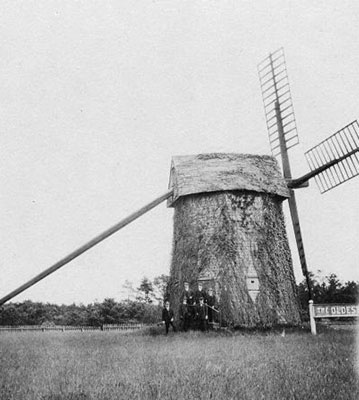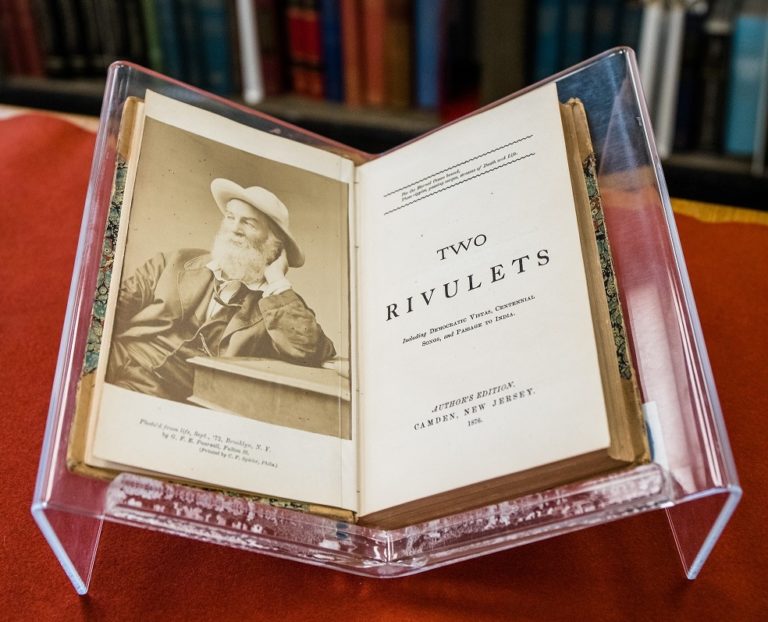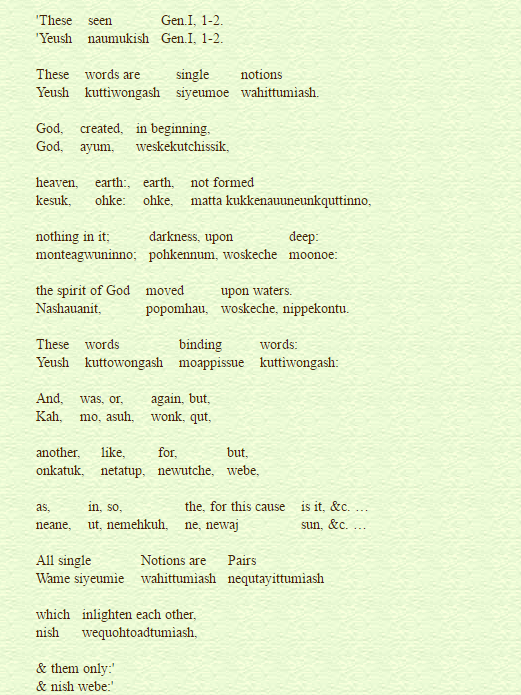Author’s Note:
As I hope will become readily apparent, The Hungry Eye is a work of historical fiction. Some of its characters and incidents are pulled from the historical record–most particularly, the dueling “special artists” Peleg Padlin and Little Waddley. Their misadventures while touring New York’s netherworld originally appeared in an 1857-58 series of articles in Frank Leslie’s Illustrated Newspaper written by New York Tribune reporter Mortimer Neal Thompson. That the pseudonymous pictorial reporters stood in for Leslie’s staff artists Sol Eytinge Jr. and a very young Thomas Nast should not be of concern to the present-day reader. Moreover, the mystery at the heart of The Hungry Eye, which entangles these and other characters and the constellation of their relationships, is my own invention. Much of what transpires here (and in the ensuing installments, which will appear in Common-place monthly between January and April) is utterly fantastic–and yet it also, I believe, remains true to the history of a specific time and place.
While I originally conceived of The Hungry Eye as a conventional novel (at least in the sense that it would end up as a tactile book printed on paper with a spine available for cracking) the chance to emulate the once ubiquitous format of serialization was hard to pass up. And wedding an older episodic approach to the still inchoate medium of the World Wide Web offered an intriguing narrative challenge. Aside from requiring some reconfiguring of the story’s structure to accommodate the start-and-stop pacing of extended and intermittent reading, I’ve tried to work with the Web to intermingle the visualization of the past–which plays a prominent role in the plot–with the telling of the story. That said, you won’t come across any state of the art programming here: what I’ve tried to do is enhance the reading experience on the Web, not replace it.
All original artwork © 2001 Joshua Brown.
“The dog hunt had turned nasty now, and Padlin–as he scrawled the arcs of flailing arms and the jags and dashes of torn turf and flesh–didn’t want to risk a blow from a misaimed club or a bite from a wounded cur.”
Padlin’s familiarity with the dead woman was the result of only one occasion, an incident that had occurred during one of his sketch assignments.
Before Padlin began work for Frank Leslie’s Illustrated Newspaper, its proprietor and namesake had settled upon one particular subject that guaranteed a dedicated readership: disease. While the paper’s audience enjoyed the engravings of visiting dignitaries, devastating disasters, and violent crimes, it was fevers, poxes, plagues, and infections that sent circulation soaring, especially when the illustrations portrayed the ghastly purveyors of pestilence. The city seemed to be clotted with an array of tainted animal life, from swill-milk cows rotting in their dark stalls to the bloated carcasses of pigs blocking the streets. So, once he joined the weekly newspaper’s art staff, it was Peleg Padlin, weak in rendering humans but masterly in the figuration of fauna, to whom the sanitary assignments fell whenever Mr. Leslie sensed his readership declining.
Which was why, one spring afternoon, Padlin found himself crouching beside an abandoned wagon on a muddy street off the Five Points. He was using the mired vehicle, pungent with the spoiled stench of its earlier cargoes, as a combination easel and shield. The dog hunt had turned nasty now, and Padlin–as he scrawled the arcs of flailing arms and the jags and dashes of torn turf and flesh–didn’t want to risk a blow from a misaimed club or a bite from a wounded cur.
Padlin had arrived early on that gray morning just as the seasonal city-sponsored dog hunt got underway. For hours the nooks and crannies of the Sixth Ward were alive with scampering boys and men excitedly chasing a skeletal mongrel here, cornering a sleek wolf there. The air crackled with the boys’ chirps, mingling Irish and English into an indecipherable Points pidgin, their bare feet slapping the swampy street. The dogs barked, yelped, growled, and Padlin filled his pad with amusing cartoons:
two urchins thrown into a bumbling embrace as their intended victim swerved round, teeth gnashing, to call their bluff; a hulking bullyboy munching a cigar and marching down the middle of Bayard Street with a convulsing sack over his shoulder; a trio of Points beauties–a cackling crone, a barrel-like grocery store matron, and a groggy concert-hall damsel–razzing the hunters.
By midday Padlin thought he had enough material for a month’s supply of Leslie’s sanitary reports. The hunt was over anyway. Most of the animals had been carried off to meet watery deaths in the East River before their sodden corpses were tallied by the city clerks who paid out the bounties. About a dozen miserable mutts still remained, corralled within the triangle of scrawny trees and weeds in the heart of the Points called Paradise Park. The skinniest of the dogs occasionally managed to wriggle through the clapboard fence, but the cordon of jeering lads always succeeded in intercepting them, booting and jabbing the fugitives back into the imprisoned pack.
The sun began to burn through the overcast sky, cutting seams into the grayness that sent blotches of light down upon the Points. The hot puddles of sunlight exalted the scene, giving it an innocent air despite the whooping and hollering, yelping and barking, despite the crooked posture of the low buildings and the crumbling of their facades. Padlin sketched a cartoon in his mind: a skeletal figure marked Rabies rising above the carnival scene, dissipating defeated into the heavens. He’d work the idea out at the office. Padlin pocketed his pencils, slid his sketches under one arm, and prepared to walk the short distance south to Spruce Street. That was when he noticed the girl.
She scampered from sunlit spot to sunlit spot, interrupting conversations, touching an arm, inquiring with an intent gaze that sent heads shaking, eyes averted until she moved on. Then stares followed her course. A host of stares, her progress competing for attention with the shouts around Paradise Park. At first Padlin took her for a beggar requesting a little charity on a rare occasion of neighborhood affluence. But, as she drew closer to Padlin, inquiring and rushing off, inquiring and rushing off, each time barely hearing an answer before she departed, he saw that her face carried a despair that differed from the mendicant’s. Each answer seemed to feed a panic that pressed her to move faster, ignoring the turds and trash, the hem of her dress skimming the pools of water that always pocked the Sixth Ward streets.
“Sir, have you seen my Jakesy?”
How could he have mistaken her for a beggar? She stood, hands clasped primly at her bodice, her red hair kept in place by a straw bonnet decorated with paper flowers. Attractive, in an unrefined way. A pretty Lize dressed for a Hoboken excursion, looking for her Mose.
“My dog, sir,” she said, her eyes widening, blue pupils against a faultless white. “I fear he has been taken off.”
“That,” Padlin mumbled, “is a distinct possibility.”
She emitted a sound–a muffled cry of consternation or a sigh of exasperation, he couldn’t be sure which–and swept past Padlin.
“What kind of dog?” Padlin heard himself call after her.
But she ignored him, pressing now toward Paradise Park. As she moved away, Padlin saw her back stiffen, her corseted waist dilate ever so slightly, the encasing fabric going taut. An intake of breath, a strengthening of resolve. He realized the girl’s seemingly meandering search had been but preparation for a more grueling confrontation.
He pulled out his pad, hurriedly attempting a likeness: innocence in the Points, a nice bit of pathos to counter the bloody farce. As usual, Padlin failed miserably. In his effort to capture her countenance, he worked the face too hard, the pencil revolving from an oval–no–to sharper lines that harshened her face–no!–to an utterly generic visage: round eyes, button nose, dew-drop mouth. He was grimacing at the mess on the page when all hell broke loose.
He had ignored the first few hearty whoops and squeals, accented by unaccustomed thumping sounds. It was the scream that broke his concentration. A gurgle that catapulted to a high-pitched screech. It coursed up his spine and palsied his drawing hand.
Paradise Park was a chaos of frenzied movement, bodies launching over the fence, brickbats and clubs swinging, beasts snapping, darting–dying. In moments scarlet blotches appeared, dots on clothes, on fists, on the hides of curs flung against the park fence, exploding into gore that seemed to rain upward into the sky. Something had been let loose. The giddiness of the hunt had toppled over into a bloody bacchanalia.
The girl was running toward the massacre, splashing through the puddles and shit, emitting that horrible scream. She reached the perimeter of the park, jittered one way, then another, looking for ingress, knocking aside the excited urchins ululating to the slaughter. Her hands went to her head and Padlin was sure he heard again, through the bellows, bleats, and thuds, her awful cry. Then she threw herself upon the fence, reaching over, wildly grasping out. She caught onto something, Padlin couldn’t see what. Her frail frame seemed to go through a series of hiccoughs, the spasms rapidly mounting in intensity, jolting her up, jolting her down. Then Padlin saw that her hands were clasped about a flailing arm. A broad plug-ugly was trying to twist around within the sanguinary clutch of curs and killers, shaking and shimmying his forearm caught by her hands. His club, a limb torn from one of the park trees, spiraled helplessly, sprinkling the air with bits of brain.
No one came to her aid. Instead, the urchins at the fence descended upon her, grabbing at her skirts, reaching up at her shoulders, pulling and pelting. The girl was like an awful convulsing carcass, barely visible under a layer of pecking, digging bluebottle flies.
Instinctively, protectively, Padlin crouched down beside the empty wagon, hurriedly sketching the chaos of movement, concentrating on the dray’s remnant fumes. The girl was screaming again, the sound cracking now, cut into gruesome burps as she flew up and down and against the planks.
Padlin stared helplessly at his drawing, at his maladroit strokes. He should do something–yet he’d be a fool to do anything in the Points. What could he do? Stab a bullyboy with his pencil? Despite his size, he was no bare-knuckle bruiser, and anyway, anyway, he had his responsibility right here in his hands. His day’s labor. His bread and butter. He looked up and saw a boy scramble over his compatriots and grab hold of the girl’s hair, yanking so her head snapped backward. Her bonnet flew off and disappeared under the trample of bare feet and boots.
Padlin grabbed the pad in his two hands and careened toward the park, holding it before him, a flimsy, fluttering shield.
He never reached the mayhem. A bloodied, slimy ball of a pig, mistakenly corralled amidst the curs, dislodged itself from the slaughter, squealing and stinking, and made straight for the sketch artist. The swine caught him across the shins. In a rare exhibition of coordination, Padlin managed to raise the pad above his head before he catapulted and landed, face down, in the muck.
He spent what seemed an eternity mired, teetering back and forth on his belly, his arms outstretched above him, trying to keep the pad out of the mess. Then he felt a sudden tug and the pad was wrenched from his grasp.
In a panic, shouting oaths, Padlin scrambled up, in the process submerging his arms in the cold slime of the street. He made it to his knees, furiously scooping mud out of his eyes, and found that he was being watched by a kid, soaked to the knees in blood, standing a few feet from him.
Padlin agitatedly examined his muddy clothes, wiped his hands on the few unbesmirched sections of his coat, and snatched the pad from the wide-eyed boy.
“You do those pictures, huh?” The kid stared up at the soiled sketch artist. A jagged tear split his shirt up one side, the faded red fabric parting to reveal the grimy ladder of his ribs.
Padlin peered around. The adults were wandering off and disappearing into the houses, grocery stores, and saloons bracketing the Points, eager to slake thirsts generated by the exertion of extermination or observation.
“You do those pretty pictures. Right, mister?” The kid took a careful step forward, nodding toward the pad in Padlin’s hands. “Of them dimber morts and swells?”
Padlin suddenly remembered the girl. He scanned the park fence. She was standing–miraculously, she was standing–gazing into the park, her hands gripping the pickets. He approached, fearful to observe her face, which she averted toward the ruins within the triangle. Her dress was torn, her bonnet lay shattered at her feet.
Padlin opened his mouth and, unsurprisingly, nothing came out. He stood behind the girl, mouth agape, unaware that he was parodying the wide-open jaws of the slaughtered beasts spewing mucous and blood before him. For want of anything better to do, Padlin finally closed his mouth, unfurled his pad and began to draw the scene. His heart wasn’t really in the task, yet in a few moments he found that an excellent sketch was emerging.
“I did you a good turn. Right, mister?” The kid was standing on tiptoe, trying to gaze around Padlin’s peripatetic elbow. “You do me and Mike, huh?”
Padlin shrugged and quickly drew two boys standing to one side of the park fence, two smudgy and beslopped urchins gesticulating and slapping their thighs in a way that nicely set off the girl in the sketch.
“Mister!”
The kid’s nose grazed the side of the pad, knocking Padlin’s pencil across the page. Padlin looked aghast at the long black line that now bisected his drawing. He swung around and slapped the boy across the top of his head.
“Hey!” The kid looked incredulously at the artist, rearranging his matted hair as if Padlin had mussed a carefully arranged coiffure. “What’d you do that for?”
“You ruined my picture, you little guttersnipe.”
“That’s the thanks I get, huh?” The kid shook his head, displaying a disdainful look that would have been more effective had he not, at the same time, stepped back several paces. “You was ruining the picture.”
Padlin advanced toward the kid, who simultaneously scampered back a few more feet.
“You got Mike all wrong,” the kid shouted.
“Go away,” Padlin said, checking his voice at the last moment, aware that the boy might have a few burly friends in the vicinity.
“You drew him wrong, mister, that’s all I’m saying.” The kid moved a little closer. “Mike ain’t a person. He’s my dog.”
Padlin cursed, but before he could do anything foolish he was stopped by a sharp tug at his elbow. The girl stood by his side, holding the fabric of his muddy sleeve. Her face was working through several expressions in an effort to locate some equilibrium.
“Your dog?” her voice like a wisp of smoke, curling around the perspiration dotting her upper lip. She tottered over to the boy and grasped his shoulders. “He’s alive?”
“Sure he’s alive,” the kid said, checking Padlin for support now that he was in the clutches of something less predictable than brutality. “I locked him up.”
“Where?”
“Kit lets me keep him at the Bandbox when the hunt’s on. You know Kit?”
“I know him.”
The kid flinched: “You do?” His eyes shimmied to the whirring of the cogs and wheels in his head as he tried to work out the trajectory of the interrogation. “You sure we’re talking about the same rabbit, ma’am? Kit Burns?”
“Yes.”
“The sole owner and proprietor of the Sportsmen’s Hall on Water Street? The best dogfighter in the Frog ‘n Toe?”
“Are there any new dogs in his pens?”
“Excuse me, ma’am, but I ain’t seen you ’round the Bandbox. And I’m the closest a cove comes to being Kit’s apprentice.”
“Are there new dogs there?”
“You mean besides my Mike? Not that he’s a permanent resident, you understand.” The kid was seesawing his shoulders now, like a sweep worming his way up a chimney.
But the girl tightened her grasp. She was barely a head taller than the boy, yet she easily subdued his squirming. “I mean a special dog,” she said. “One you’d never confuse as being like any other.”
“No,” the boy said. But his eyes and his imperfect attempt to anneal his features contradicted the word.
Then he said, “I got to go.”
Then he whimpered, “Please, ma’am.”
And when the besmeared young woman began to moan, a fluting “Oh no, oh no, of course, of course,” the kid really put his heart into wriggling free.
But she held him fast. She pressed her face close, her forehead colliding with the boy’s quivering brow, and she wailed: “Tell me! Tell me or I’ll place a curse on you and your kin and your wretched Mike and every filthy thing you ever touch! Tell me, does he have my Jakesy!”
“There ain’t no dog called Jakesy!” the boy yelled back with equal desperation. Padlin, once more the helpless, hapless bystander, noted faces peering from windows, heads turning in the street toward a new sensation in Paradise Park.
“No dog with blue eyes?”
The boy blinked back at the question.
“You’ve noted the eyes, huh?” The girl nodded in triumph. “Sort of, yes, sort of like yours. Like a young boy’s. Frightened one moment, ecstatic the next. But, there’s calculation in Jakesy’s eyes, like he knows the worst that a human being can do and he’s sizing up everything you say. He’s seen terrible acts, that’s what his eyes say. He’s seen them, been the victim of them, and understands them. I’ve had him but a month, but it’s been like seeing a panorama of men’s deeds, looking into those eyes. I know you’ve seen him, I can see it in your eyes.”
Padlin discovered that his mouth was hanging open again.
“His name ain’t Jakesy,” the boy said. “Kit calls him Butts.”
A tremor jolted the girl’s frame, a quake that blurred the gingham of her dress and the tatters of the boy in her clutches. In the spasm, she released the kid, who scampered off toward the wagon behind which Padlin had earlier sought refuge. From there he watched her stationary dance, as did Padlin, whose emotions were now lost somewhere between awe and trepidation.
Later he would wonder if the girl had not been some kind of wraith, a spirit haunting the city’s underworld. Or, perhaps, she was afflicted by such a feathery force; her eyes, rolling up in their sockets, the shaking of her limbs, and the moan escaping her lips seemed to come from a hidden presence bubbling within.
The next moment she was gone. A sharp nod, a grimace, her hands clutched her head, and then the girl was cascading forward, gallivanting on a straight course, unmindful of the terrain. Her feet sent up gasps of muck as she went, her shoes became churning blocks of mud, her hair flew free like flames pouring from the mouth of a locomotive stack.
“Ma’am!” The boy called after her through cupped hands. “Ma’am!”
She did not turn.
“Ma’am!” the kid tried again. “I don’t think Kit’ll be too keen to let him go.”
Her maniac tread went uninterrupted. Her feet made slight shifts as they momentarily lost footing, but she did not stop, did not falter in her forward momentum, heading toward the East River.
“Did you hear me?”
The girl passed a corner grocery, attracting the attention of a clutch of b’hoys quaffing liquor at the entrance. Necks craned to follow her passage, a few shouts peppered her footsteps–“Where you off to, me doxie?” “Run, Saratoga Sally, run!”–and she disappeared from view.
The heads around the grocery door bent back to mark the frozen Special Artist. Padlin quickly closed his pad. Drying mud crumbled out of the creases of his coat. He patted his stiffened pockets to make sure his pencils were still there, as if he would bother to tarry if they weren’t. Pulling the brim of his hat lower so it hooded his eyes (which he knew, despite his best efforts, carried the vulnerable look of bewilderment), Padlin set off.
“Hey, mister!”
Padlin ignored the boy.
“How about my picture?”
Padlin paused. The girl had earned herself an audience that would have made any Bowery performer proud. Padlin opened his pad and turned to his damaged sketch of the girl and two urchins. He tore the page from its binding. He draped the sheet over the park fence and exited the scene.
“Is this my work: Am I somehow the author of this horror?”
What Little Waddley lacked in height and age he more than made up for in ambition. To Peleg Padlin’s mind, his junior colleague’s aggressive good humor and eagerness to plunge, pencil to the fore, into the gruesome realm of the sensational masked a calculating and morbid soul. Stealth was what Padlin read in that cherubic face, its tiny eyes hugged tightly by buttock-like cheeks, his pinched mouth disarmingly offset by an aspirant goatee. Waddley’s bulging package of a body always lingered around Mr. Leslie when he made his daily survey of the artists’ work. He was forever the first to volunteer for the most odious assignments, strenuously voicing (in that annoying treble that fondled his Teutonic pronunciation) his willingness to serve, fully aware that Quidroon, the true republican, believed in equally distributing the onerous tasks. And Waddley, unlike the silent Padlin, consistently accepted his editor’s every criticism, responding to each correction with a store of continental gratuities–“Quite so, sir”s and “I stand corrected”s (carefully rolling the canine letter)–that enunciated surrender while implying his acquiescence was due to a greater, if unworthy, force.
Waddley was equally adroit at accepting praise, releasing a viscous stream of self-abnegation that only a fool like Quidroon could believe, not to mention relish. Indeed, Quidroon appeared to enjoy Waddley’s embroidered modesty–in equal proportion, it seemed, to how much he hated Padlin’s silence. No doubt it was this behavior that prompted Quidroon to choose Waddley to doctor Padlin’s drawings over some other less obsequious member of the art staff. Certainly, as far as Padlin had been able to discern, it wasn’t due to any particular talent–beyond the talent for doing exactly what his superior wanted–that designated Waddley for the duty.
When Padlin returned from the morgue and proceeded to ignore his editor’s greeting, his queries about the grisly assignment, and finally his request to see the sketches, it was not too surprising that the (by then) nearly apoplectic Quidroon summoned Little Waddley to his side. Ordering the rotund youth to follow him, Quidroon marched over to Padlin who sat hunched over his sketches, staring at his miserable, albeit preliminary, rendition of the dead girl’s face.
“Mr. Waddley,” Quidroon said, “what do you see before you?”
“Peleg Padlin, sir,” snapped the ever vigilant lad, quickly embossing his answer with: “My esteemed colleague, Peleg Padlin.”
“Mr. Padlin has just returned from the morgue. I wonder if he will do us the honor of showing us his drawings.”
“I would be most pleased to see what he has recorded, sir,” Waddley said as he and his editor pressed around Padlin. “I have learned, even in my short time in these premises, how much I can learn from his skill and sharp eye.”
“‘Skill,’ you say, Mr. Waddley? Is that how you would characterize Mr. Padlin’s efforts at representing this grim scene?”
“Most assuredly, sir. The sketch,” Waddley took in a breath, rolling one hand like he was winding a mechanism for oration, “it projects a . . . dampness that reminds me, if I may say so, of the Rhine when it floods its banks.”
“What about the face of that young woman–it is a face, isn’t it, Padlin? Would you call that an example of skill, Mr. Waddley?”
“I don’t have much experience in matters of death, sir, but I would say that Mr. Padlin has caught the mark of the grim reaper.”
“Curious, though, how the girl’s face is not unlike the face of the corpse behind her. And the corpse behind that one.”
“I see your point, sir,” Waddley eagerly nodded. Then, eyeing Padlin, he added: “But the mustache on the second face clearly denotes a male.”
“You hear that, Padlin?” Quidroon remarked into Peleg’s ear, “Mr. Waddley praised your efforts. I think such generosity of spirit deserves a reward, don’t you?”
No, Padlin didn’t think so. He just stared at his drawing, at his inadequate rendition of the girl’s contorted face, thinking: Was this Kit Burns’s work? And underneath that thought, like a rivulet seeping, eating away at its construction, emerged a more dangerous idea: Is this mywork: Am I somehow the author of this horror?
“Padlin!” Quidroon’s shout sent heads turning, silencing the gouging of gravers into wood, the prattle of reporters exchanging ribald jokes.
Peleg nodded.
“Are you planning to do something here or have you decided to merely grace us with your presence?”
Padlin graced Quidroon with his full face. He contemplated the dome of his editor’s head, glistening with perspiration.
“Well?”
Padlin looked at the expectant Waddley, the predator whose gaze was fixed on his prize, his possession, hissketch.
“Yes,” he said and, with more ceremony than he intended, Padlin reached up and lifted his hat off his head. With uncharacteristic daintiness, he placed it at the head of his desk where it wouldn’t block the light.
Quidroon’s mouth remained twisted in exasperation, but his eyes followed the hat’s unprecedented journey. He gazed at it for a few moments, seeming to consider the pits and bald spots that marred its columnar sheen.
“Do it, then,” Quidroon snapped. “Make it a full page.”
The editor swiveled and marched off. A few moments later Padlin heard his bark emanate from the composing room, castigating one of the slower typesetters; shortly thereafter, from a different direction, a lounging reporter was the object of his abuse. There would be a chain of assaults, distributed arbitrarily, until Quidroon’s ire abated, a standard feature after one of his altercations with Padlin: one more reason why Padlin was not a popular figure in the publication’s office.
But Padlin wasn’t bothered by the perpetuation of his infamy; rather, he was puzzled by Quidroon’s gesture, his bow to Padlin’s proprietorship over his morgue sketch. Puzzlement was as far as Padlin would permit himself to venture: a faint tremor of elation tickled the corners of his mouth, but it was best to keep that at bay. As for Waddley, he remained for a short while, blinking, trying, like Padlin, to discern the turn of events. Then he abruptly headed back to his own perch.
Padlin knew there was little time to spare. He went over to the engraving department where he chose a large rectangular block of boxwood, about one inch thick. Taking it in his hands, he examined its polished and unblemished surface: cut across the grain, it was solid and unyielding to the touch. His fingers traced the bolts and nuts sunk into the reverse side; in fact, the block was really twenty pieces of wood attached together to cover the dimensions of a full page. He returned to his desk, set the block down, and with a fine lead pencil began to trace out his morgue sketch on the smooth surface, working out a mirror image, everything reversed. It was a good block, the constituent pieces meeting evenly so his moving pencil barely sensed their borders.
Padlin enjoyed this part of the work, his mind roaming over how he might instruct the engravers to treat his sketch. Picking up a brush, he began to emphasize his pencil work with India ink, making precise outlines to guide the cuts. When the figures and objects were clearly delineated, he began to suggest the lighting with watercolor tones. He wanted to leave as little as possible to chance, aware that, in the end, the engravers decided how his work appeared in the published pages of Frank Leslie’s Illustrated Newspaper. When Padlin was done, the block would be unbolted and distributed to several of them. The engraving department was staffed largely by a squad of lank-haired and slouching youths, obstreperous in the office, ranging wildly in the dexterity of their craft (Leslie got what he paid for), and irresponsible in their attitude toward the sanctity of the sketch artist’s work. Grimacing and cursing, the lads would hunch over their magnifying lenses, squinting down at Padlin’s efforts, their cupped palms pressing the gravers into the wood.
The clearer the path set out for them, the more likely it was they would only gouge away the surface around your lines and properly transform your watercolor tones into gradient cuts. When the engravers had done their worst, the finished pieces would be rebolted, a master craftsman would etch the lines across the borders of the smaller pieces, and something akin to Padlin’s vision would go to the presses. It was a fast and efficient process, the marvel of the age: visual news presented to the public in a matter of days. For once, Padlin felt he had some control.
And, as he worked, as he mastered his memory of the scene, Padlin grew calmer. His earlier dreadful thoughts dispersed with his treatment of the wood, the logic of his hand’s movement diminishing the guilt that had poisoned his mind. There was no way that his inaction could have precipitated the girl’s fate: true, she had gone to confront the (no doubt) terrible Kit Burns. But the incident had occurred–what?–weeks ago. Her death, her wretched, rigid remains, could not have resulted from that moment. Something had happened in the interim, something horrible to contemplate, but it most likely had nothing to do with her dog or Kit Burns or Sportsmen’s Hall or himself.
Now his mind had no more room for doubts or recriminations. He had saved the girl’s face for last, and he could no longer put off the challenge. Padlin looked at his insubstantial sketch and tried to will her face into a palpable vision, a map to pilot his hand. He pulled sheets of paper from his desk drawer, experimenting, starting with an oval, tracking out lines for the brows, the end of her nose, her mouth, then working out the features. This time, he thought, this time I will get it right. With an effort, he banished the vision that always clouded his work. The woman’s face broke through into his mind’s eye, he grasped its horrific stare, his fingers seemed to be moving correctly–but then it all fell apart.
Emitting an exasperated grunt, Padlin swiped the paper off the block and tried again. And again. And again. The light outside diminished, the gas jets were lit, and in their wavering, ochre light Padlin made no progress. The old familiar panic took hold of him, but he fought it, forcing himself to try one more time . . . and then one more time again. He’d stay all night if he had to; he’d remain crouched over his work until he got it right.
“It’s time, Mr. Padlin.”
Quidroon stood over his shoulder, examining the latest rendition, examining the shuffle of papers surrounding Padlin’s desk. He was wearing a long coat, his top hat in one hand, his watch in the other. Quidroon didn’t look irritated, he didn’t look forlorn. He appeared, in fact, quite content. Padlin realized that his editor had provided him with a generous length of rope.
Quidroon gazed over his spectacles at Waddley, sitting alert and beady-eyed like an expectant barnyard cock, his short legs dangling, shoes shaving the floor in anticipation.
“Mr. Waddley,” Quidroon called, “it’s your turn.”
“He should never have gone back into his mother’s sick room, should never have stared at her wrecked features.”
Padlin stayed too long in Mulvahill’s saloon, drawing and redrawing the girl’s face in the wet circles left on the bar by his glass, putting off for as long as possible the retreat to his room in Mrs. Mendoza’s boardinghouse. At some point late in the evening his stomach began to grumble and, knowing he’d missed his landlady’s designated dinner hour as well as her disinclination to keep a dish in the oven for the likes of an artist (a suspect calling in itself, let alone one with liquor on his breath), Padlin stoked up on Mulvahill’s fare of fatty mutton. But amidst the mastication of his third or fourth mouthful, Padlin felt his unhappy stomach take a still unhappier turn. It took the last shreds of his determination to make his way past the crush at the bar and through the cluttered alley alongside the saloon to the privy in the back.
So, stomach empty and head compressed in the liquor’s remnant vise, Padlin returned to his boardinghouse. He disrobed, slipped on his soiled nightdress, and burrowed under the rough ticking. All he wished for was the deliverance of sweet slumber, nothing more: no thoughts, no dreams, and, certainly, no visions. But against the scrim of his eyelids it began to emerge: the face he could not capture and the shame, the thick, choking miasma of mortification. His counterpane seemed to shrink about him; he could feel it tightening into a shroud.
Gripped by a sudden panic, with a shout Padlin wrestled free, flinging the wet covers onto the floor. He had been dreaming, however briefly. But the realization did not bring relief. He lurched off the bed, the straw mattress crackling with alarming loudness, and proceeded to walk the meager contours of his room. Apparently, his pacing was accompanied by rather audible exclamations because in due course–although Padlin had no idea how much time had elapsed–Mrs. Mendoza made a dramatic entrance, accompanied by the red-eyed Wall Street clerk who rented the room below. Padlin was required to exhale in his landlady’s face upon which, her lips compressed in condemnation; she suggested that if he could not hold his liquor or his tongue there were more suitable quarters available for the sketch-artist in the Five Points. After the duo departed, Padlin realized there was really no recourse. He lit the gas and pulled out his pad.
He shut his eyes and burrowed into his mind, trying to clear a path to the girl’s face. The pulsating pain the liquor had induced in the center of his forehead actually helped, a knife slicing away the usual interfering images. When he thought he had it he let out a long sigh and began to draw.
But it was no good. When the harsh yellow of the gaslight was replaced by the muted blues of a dull morning, Padlin faced a batch of unsuccessful death-portraits scattered at the foot of his bed. Each seemed one step further removed from the last in its fidelity to the girl’s countenance. He stared at the pad, unnerved by his utter inability to guide his hand, to control the glide and twitch of his pencil. The chatter of morning traffic seemed like a rebuke, wagon wheels and horse hooves composing a condemning litany, a chorus uttering failure, failure, failure.
Choking back a sob, Padlin fell back against the wall. And the terrible face broke through his restraints and took over his mind.
Not the girl’s face. It was the one that always haunted his inner eye, beclouding his mind and paralyzing his fingers.
He drifted out of his room and the rising noises of the street diminished, replaced by the keening of his father. The usually deep voice cracking into ear-splitting whimpers. He could not look at his father, knowing he had failed him. His first and everlasting failure.
Nine years ago. Just when Padlin thought he had mastered his craft, it proved beyond his grasp. And it had been his mother’s face that had sealed his fate.
Now he saw it before him: cradled on the white pillow, shrunken, deteriorated. The odor of vomit and purged bowels was heavy in the July air about him, the awful stench worsened by the nose-piercing camphor “segar” smoking on the table by the bed. The effluvium lingered despite the windows cast wide open to disperse the stink of her last hours of life. The Brooklyn street outside was eerily silent: everyone who could had fled the city; those who couldn’t hunkered in stifling terror in their homes. Padlin had tied a kerchief over his mouth and nose before he began laboring over the corpse
His father had refused to remove her to the cholera hospital. That was no place for his Lil, that charnel house for the vice- and vermin-ridden denizens of the Points. They had forced down her throat the gobs of chalky calomel mixed with laudanum prescribed by the head-shaking doctor until her gums bled, stuffed her with sulphur pills only to see them spurt from her desiccated lips. Within a day, her soft features had shriveled against the angles of her skull, her rosy complexion turned a terrifying sky blue. One moment she had been bustling about his father’s print shop, cooing praises over Peleg’s latest drawing–of what he no longer could recollect–when she wasn’t retrieving errant tools or wiping invisible specks from the press (even though there had been no customers for weeks); the next, she was prostrate but for the violent vomiting and shitting.
The end came quickly. But before the deathwagon arrived to remove her, her son had one final duty to perform. His father had begged him: draw her, draw her as she was, my dear dried up darling wife, your mother. You never got round to sketching her lovely face in life: now, for the love of God, do it before it’s too late. You can’t bring back the dead, but you can return her face as it once was. Give it back to me, he pleaded. Please, lad, give it back to me now!
Padlin should never have jumped to obey the request . . . but how could he refuse? He should never have gone back into his mother’s sick room, should never have stared at her wrecked features. But he thought it might jar his addled, bereft imagination, give him at least the foundational markers from which he could resurrect her once splendid form.
Steeling himself, Peleg propped his pad in front of him and, wiping away the obscuring tears, he set to work. Oddly, he felt a confidence emerge out of his grief, like a resplendent butterfly arising from the murky pupa: he could do this, he thought: capturing a likeness was almost second nature to him. Sitting by the Fulton Street ferry for hours at a time, hadn’t he rendered face after face after face with only the most passing glance as a resource? Hadn’t his father guffawed mightily at the caricatures of his customers that Peleg quickly scrawled from memory?
It was all delusion, though. As Peleg worked by his mother’s corpse, he was slowly poisoned. The beauteous, red-winged monarch never emerged from its cottony shroud: instead, in its place, scuttled some hideous, slimy-carapaced beetle. Padlin labored furiously, labored for hours–he labored as he had never done before and never would again. He babbled encouragement to his cramped fingers; he tried out small cartoons hoping to prime the pump of his exhausted being, his useless being; he held back the realization of his incapacity for hours until, weeping, he trod from the deathbed and dumped the rotted fruits of his efforts before the unforgiving gaze of his poor father.
Of course, Padlin tried again. The next day, then the next week, then the next month he went through notebook after notebook, filling them with inaccurate, unidentifiable physiognomies. It was as if a hole had been burned in his eyes, leaving only the smoldering remnants of his mother’s deathmask for him to cherish for eternity.
Padlin poured water into his wash basin, savagely slapped his face and armpits, dressed and, punishing himself, avoided the attractive odors emanating from Mrs. Mendoza’s kitchen to make his way back to the office.
He was chagrined to hear, on his arrival, that the woodblock was now in the hands of the engraving department. Luckily, the slothful engravers had not deigned to begin their work until forced to do so, and he found the boxwood rectangle still bolted together. It lay on a table, looking more solid than before, lacquered by the lines and tones jotted over its surface. Padlin carried the block to the window, away from any prying eyes, before he permitted himself to inspect what Waddley had wrought.
The drawing was wrong, so wrong. Waddley was good, Padlin had to grant that; the face possessed dimension in that its placement felt right, the head heavy and slack against the slab, a dense weight tautly tethered to the body by the long line of the neck tendons. But the face projected too much grace, too much purity: instead of her contorted features, the girl had become a martyred saint, undeserving of her end and yet at peace with her fate.
“Do you approve, Mr. Padlin?”
The little sketch-artist stood a few feet away, his mouth set in that irritating, wet pucker of a smile. His eyes danced upon Padlin’s face, sliding off of the shadowed brows, skittering on the inky beard, vainly trying to locate a secure plane to settle upon.
“I hope you’re pleased with my endeavors,” Waddley continued, one hand flapping vaguely at the block. “I have tried to do justice to your vision.”
And then as Waddley approached him, Padlin turned and raised the heavy boxwood above his head.
“Padlin, what are you doing?”
Padlin didn’t know what he was doing. He just stared down at Waddley, imagining the impact of the block on the round melon head, the feel of density converted to pulp through the wood, pits and bone and meat spattering the floor.
Go to The Hungry Eye, Episode 1
Go to The Hungry Eye, Episode 3
This article originally appeared in issue 2.2 (January, 2002).



